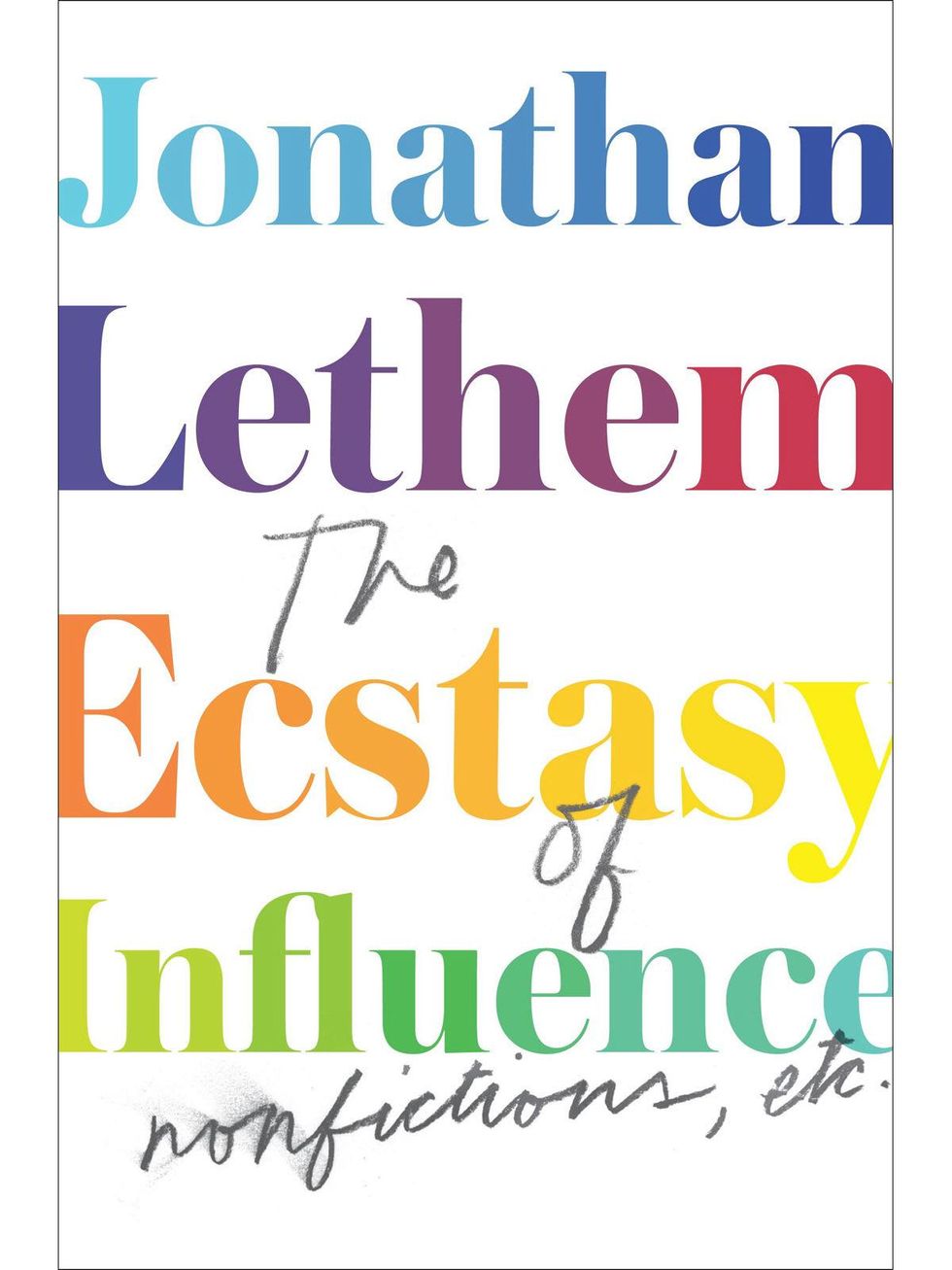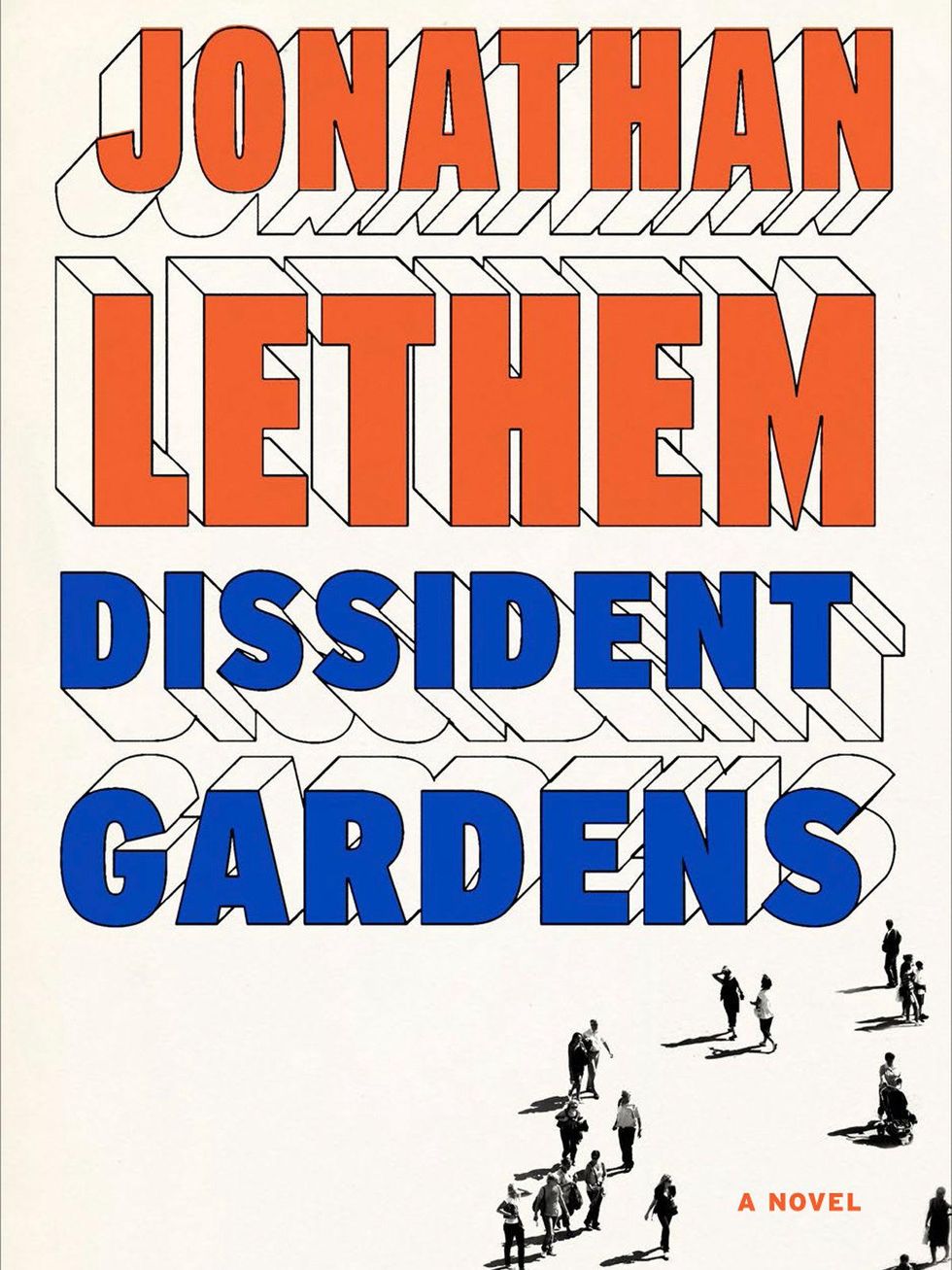Inprint Reading Series
The Ecstasy of The Shining: Novelist and fan champion Jonathan Lethem enters Room 237
If given the opportunity to interview an acclaimed and award-winning novelist, I would not advise to begin with: “Hey, is it cool if instead of discussing your latest work, we talk about this totally trippy movie I saw last weekend?” unless that writer is Jonathan Lethem and that mind-warping film is Room 237.
Lethem, the best-selling author of eight novels, including The Fortress of Solitude and Chronic City, is also a national Book Critics Circle Award Finalist who has written books and essays on subjects as diverse as Philip K. Dick, The Talking Heads and John Carpenter’s cult classic film They Live.
One of Lethem’s most recent books, The Ecstasy of Influence is titled after his now infamous pro-plagiarism, anti-Mickey Mouse article he wrote in 2007 for Harper’s.
The essays within Ecstasy explore everything from Donald Sutherland’s buttock, to the brilliance of Italo Calvino, to being a panelist at a science fiction convention. Throughout the collection, he ponders the nature of criticism and the relationship between art and audience, story and reader.
This was also the book I was rereading and contemplating when I went to the Museum of Fine Arts to see the Houston premiere of director Rodney Ascher's documentary on Stanley Kubrick’s The Shining.
I couldn’t keep from connecting many of the ideas Lethem was exploring in Ecstasy of Influence and the way these fans of The Shining were finding their own very strange and wondrous meanings in the film.
Room 237 is not a behind-the-camera peek into the making of The Shining, but instead an examination of how lovers of the film watch, interpret, and project their own obsessions into it as they attempt to decode some deeper meaning they’re certain Kubrick hid within each frame.
And this is how I ended up mentally wandering the haunted maze of the Overlook Hotel along with the Room 237 narrative voices: The war correspondent who was sure The Shining is really about the genocide of the Native Americans, the historian who was certain Kubrick was actually making a coded Holocaust movie, and that awesome dude who knew the U.S government would soon be coming for him as he had discovered The Shining held Kubrick’s embedded confessions that he faked the Apollo 11 moon landing for NASA.
Walking to the MFAH parking lot, I couldn’t keep my brain from connecting many of the ideas Lethem was exploring in his essays within Ecstasy of Influence and the way these fans of The Shining were finding their own very strange and wondrous meanings in the film.
Then, shit got weirder.
The Connection
24 hours before I was scheduled to talk to Lethem by phone I discovered through intense research (googling “Lethem” and “Room 237” together) that the connections between Ecstasy and Room 237 were not all in my head. Lethem and Ascher are friends and, as Lethem himself told me, he “ended up sort of changing the ending of the movie” when he told Ascher about special fan screenings that project The Shining forward and backwards simultaneously.
And that was when I took a few minutes timeout to do an impression of crazy-eyed Shelly Duvall as she discovered Redrum is murder spelled backwards.
When we did talk, Lethem was amused by my synchronicity freakout, and more than happy to discuss Ascher’s film which he loves, instead of topics like Philip K. Dick or the literary wars over genre, subjects which he feels he has “exhausted.”
He describes Room 237 as “a giant allegory of what interpretation does. That interpretation is always crazily right and crazily wrong at the same time is what’s really exciting to me about it.”
With the possible exception of the moon landing conspiracy theory, Lethem believes “You have to be really in an anti-intellectual fortress not to have your sense of those images, those scenes and of Kubrick’s project deepened by what you’re hearing [in Room 237].”
“That has nothing to do with the artist’s intention,” he argues. “Which is why the film is so double-edged, because you’re having the experience of finding the interpretations amusing, and these people strike you as lost souls in a way. But, unless you’re dead to what art does and how it operates, you’re also falling down the rabbit hole with them.”
Critics vs. Fans
Down the rabbit hole I too jumped, asking Lethem what difference there is then in the relationships between artist and audience verses critic and audience.
Ascher “ended up sort of changing the ending of the movie” when Lethem told him about special fan screenings that project The Shining forward and backwards simultaneously.
Lethem would only ponder that question if we brought fans into that equation.
“There’s critics and interpreters, then there’s a professor of English who’s interpreting a work, mediating an interpretation for a group of people. . . and there’s a fan, having this charged relationship, an obsessive focus on something,” he explains.
Lethem has great affinity for fans, being one from a young age himself.
“A lot of my work is about people who are fans, who have some sort of halfway achieved authority or creditability in terms of interpretation. . .we’re all sort of self-appointed detectives in our cultural experience. I try to inhabit the role with gusto instead of being embarrassed about those aspect of it.”
But would Jonathan Lethem the novelist be as open to fan interpretations as Jonathan Lethem the critic? If a fan of his novels built an elaborate interpretation around something as wild and wonderful as Lethem helping to stage the moon landing, would he just go with it?
“Nearly anything short of that,” was his response. “It’s a gift if people care enough to project into your work. There’s something alive there. There’s something happening there that I’d be really unlikely to shut down, unless the interpretation produced something like a white supremacist agenda on my part.”
He also doesn’t discount that readers and fans are seeing things in his work that he as the artist might not always be aware of himself.
“People who start writing are opening themselves to things, and I’m thinking of more things than I realize [consciously], so I’d be very reluctant to disqualify stuff like that. It usually strikes me as having terrific energy behind it when it happens.”
Jonathan Lethem and John Jeremiah Sullivan close out the 2012-2013 season of the Inprint Margarett Root Brown Reading Series at 7:30 at the Alley Theatre on Monday, April 22.




